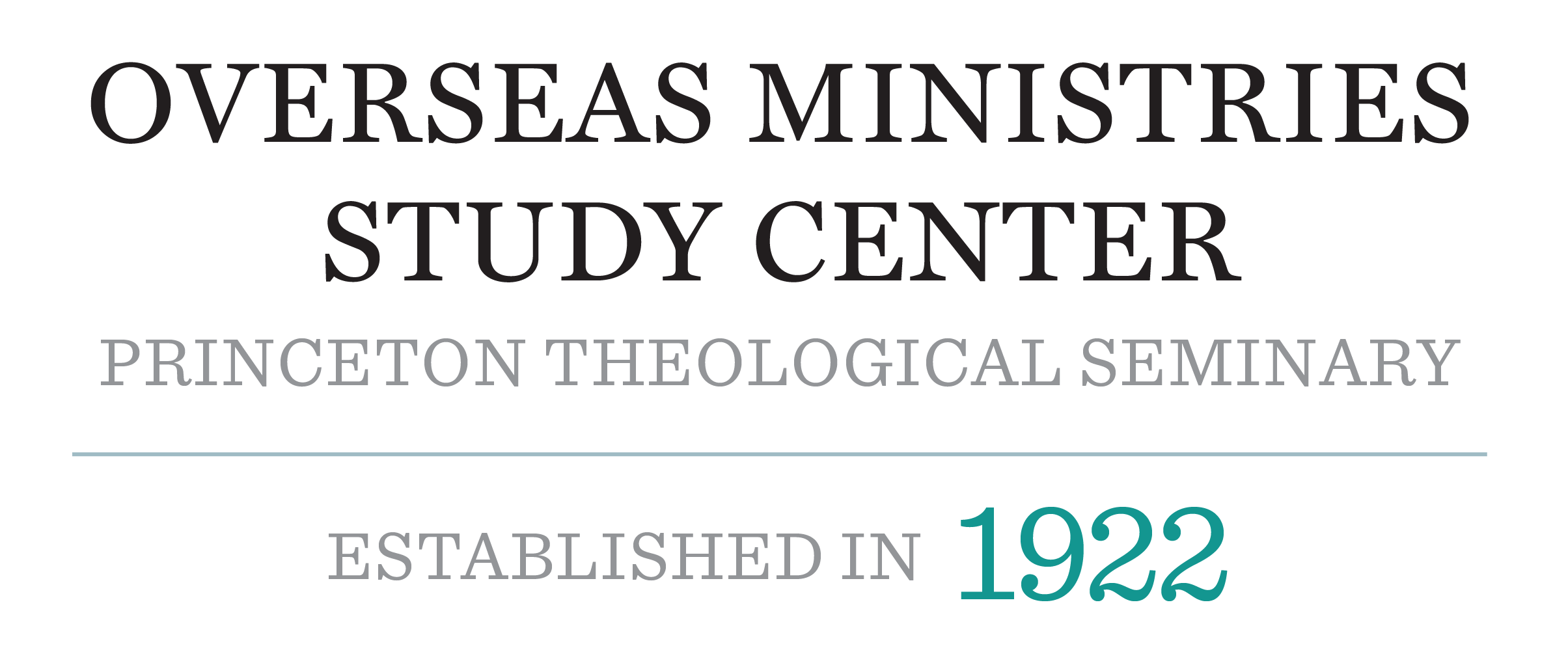When OMSC began its new season of ministry and research at Princeton Theological Seminary in 2020, one of our top priorities was to explore new ways to deliever theological education in a globalized world. As a result, OMSC launched a new program and initiative in Lived Theology and World Christianity in 2022, a year-long course delivered fully online to provide introductory training in qualitative research and theological reflection for church leaders and scholars around the world. Designed and led by Dr. Easten Law, OMSC’s Assistant Director for Academic Programs, the course’s inaugural cohort featured students from Japan, Hong Kong, India, Nigeria, Uganda, and the United States.
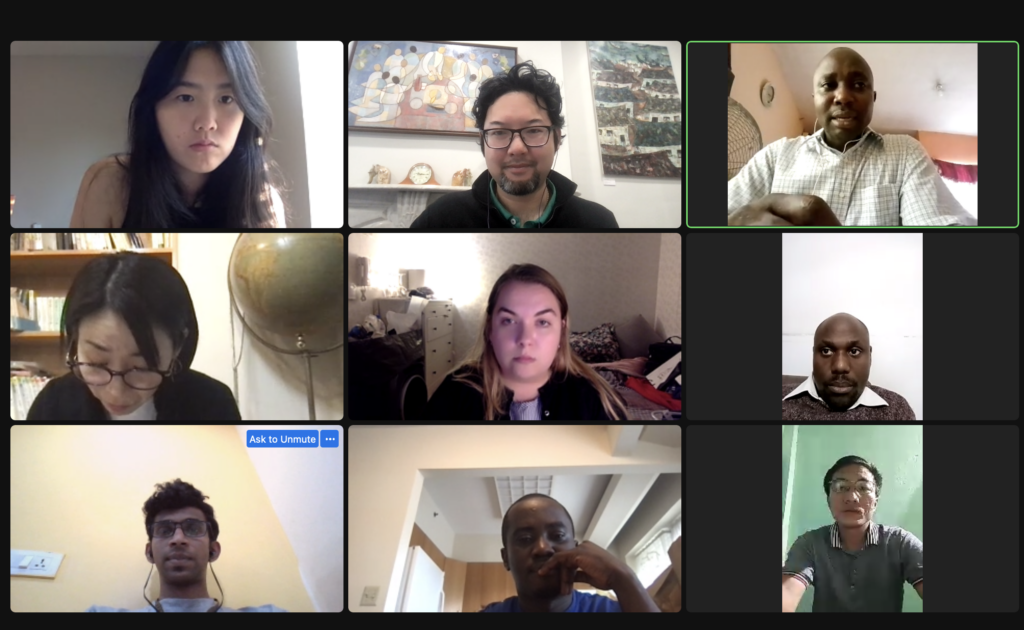
During the 2022-23 academic year, participants from around the world engaged pre-recorded video lectures and curated readings from leading and emerging scholars, exploring intersections between practical theology and the world church. They shared their thoughts on discussion boards and one-on-one advising with Dr. Law to reflect and apply course content to their research interests and local contexts. In the latter half of the program, many put their learning into practice by conducting small scale research projects. Those who completed the course and research project earned a Certificate in Lived Theology and World Christianity awarded by OMSC.
For example, David Hirome, an Anglican priest from Uganda currently studying in South Korea, utilized semi-structured interviews and digital ethnography to examine how Ugandan migrant laborers in the Gulf States experienced God’s presence during online worship. Reflecting theologically, David linked his findings with the experiences recorded in the Hebrew Bible when exiled Jews faithfully worshiped in foreign lands.
In Japan, Madoka Miguchi employed surveys and semi-structured interviews to explore how alumni from elite private Christian high schools perceived Christianity and God after graduating. Bringing her experiences as a pastor and educator to her theological analysis, Madoka resonated with Phillip’s role as a companion to the Ethiopian eunuch in the New Testament book of Acts and promotes it as a model for Christian witness in Japanese education.
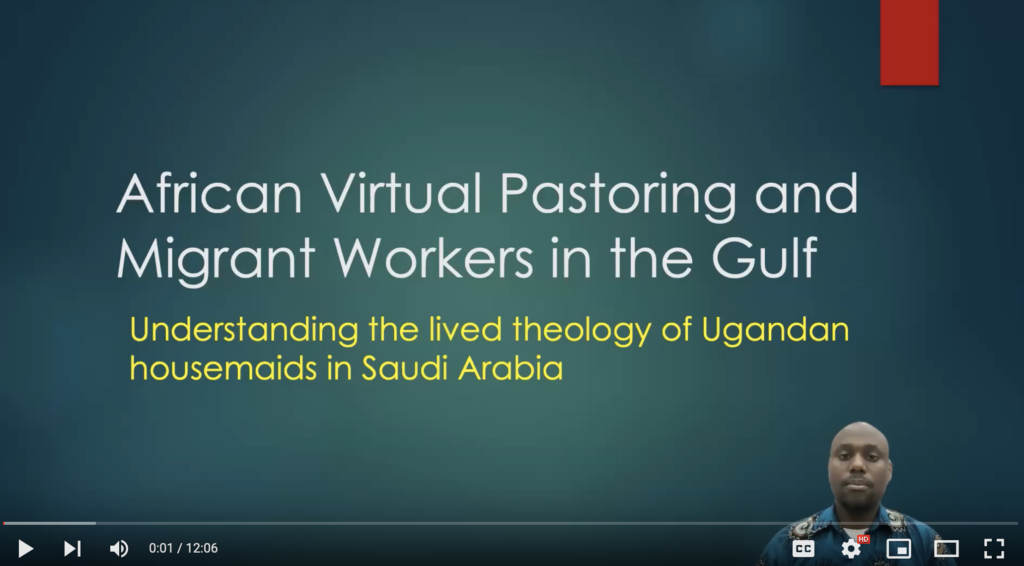
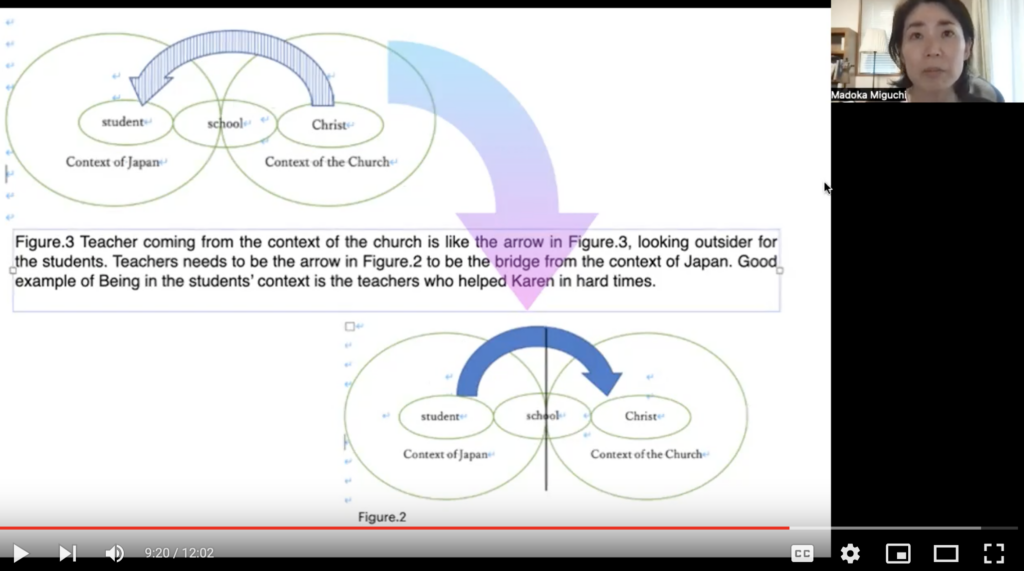
While not all of the participants considered themselves theologians or qualitative researchers, the course still provided new lenses for engaging other disciplinary perspectives. Rachel Crilley, a recent alum of Princeton Seminary serving in South Korea, revisited her historical research on American missionary Lillias Horton Underwood to discern Underwood’s lived theology of Christian womanhood in an age of cross-cultural encounters.
In the context of the Syro-Malabar Catholic Church of India, Sonal V. Manoj used surveys with youth and young adults from his church to supplement historical research on the renewed use of traditional Syriac language hymns in worship. He wondered how these ancient songs might be shaping Christian and regional identities. For both Rachel and Sonal, the course offered new tools for multi-disciplinary study.
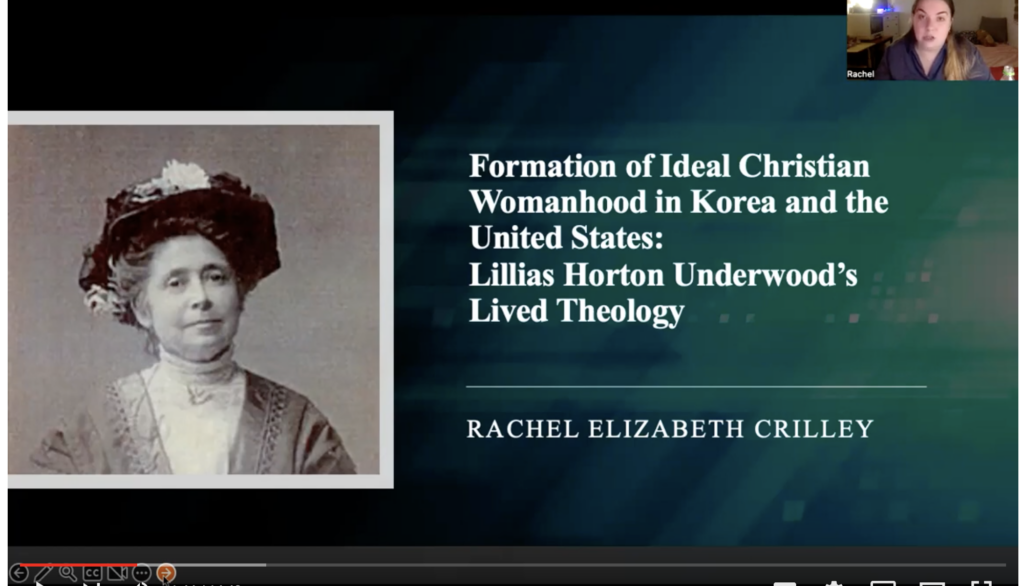
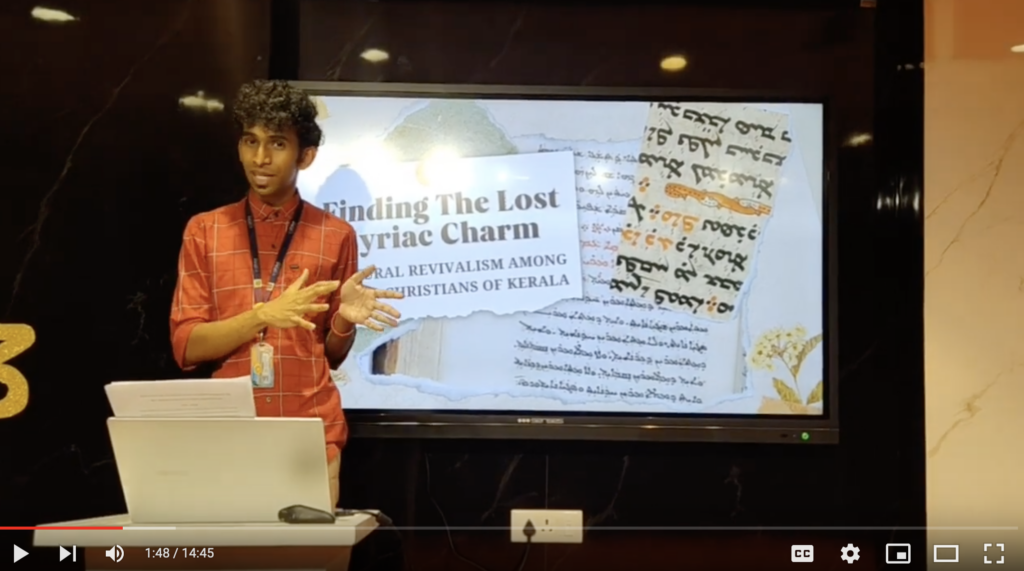
While the first year of this program has proven to be a modest success, we remain diligent in our evaluation and assessment in order to improve. Feedback from first year participants included a desire for more practical training in methods as well as more targeted attention. To remedy the complexities of working with diverse backgrounds across multiple time zones, Law recruited Dr. Caroline Yih and Dr. Francis Kwabena Benyah to serve as online course facilitators in the program’s second year.
Together, Yih and Benyah are producing a series of short lectures introducing methods in semi-structured interviews and participant observation to provide practical entry points to qualitative research. Respectively based in Hong Kong and Finland, Yih and Benyah also provide Law much needed support to engage participants across time zones and advise on their research projects. This year’s cohort includes young scholars and church leaders studying from the United States, France, Kenya, India, and South Korea.
At a time when theological education is undergoing precarious changes, OMSC’s commitment to amplifying the voices of the world Christian movement requires a willingness to experiment and expand in new ways. We hope and pray this online course of study provides one piece of a new foundation from which the world church can gather and build new platforms for growth and learning for mission and ministry.
Learn more about our online certificate program in Lived Theology and World Christianity HERE. Applications for the 2024-25 cohort opens April 15 and closes June 15. If you feel so led, consider donating a financial gift to OMSC to support the development of programs like this one HERE.


